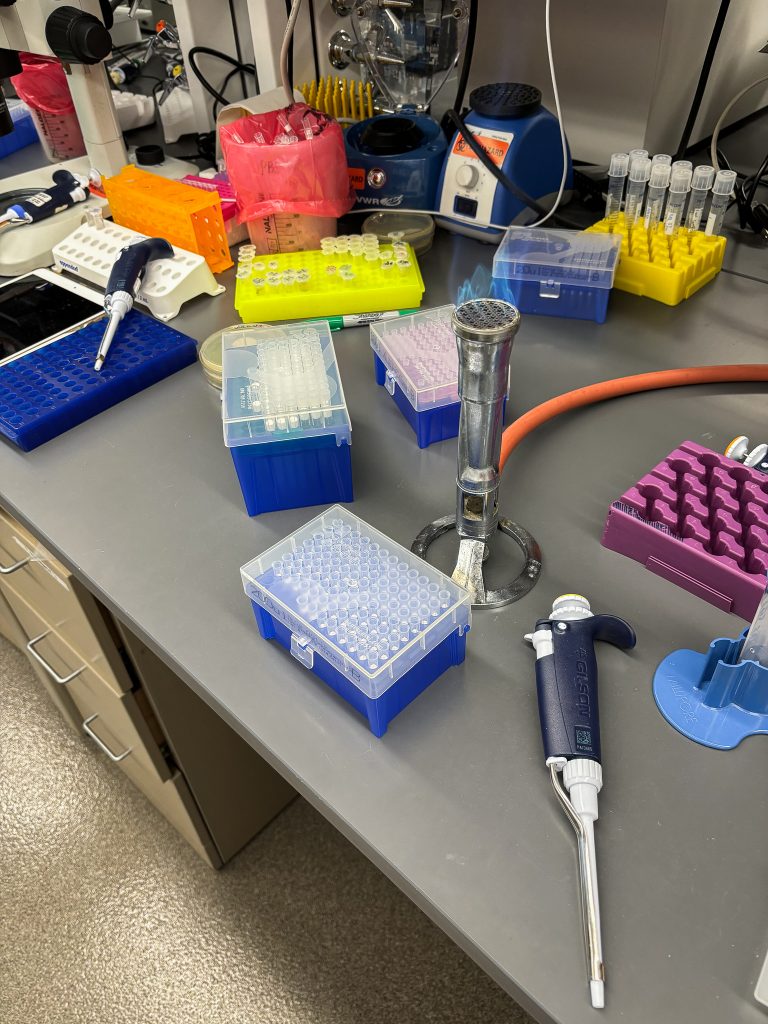Recent internal guidance restricting the National Institutes of Health’s spending could affect researchers across the country, including those at Binghamton University.
On Jan. 22, the Trump administration began placing restrictions on NIH’s functioning, initially including a ban on travel, a freeze on communication and hiring, and the cancellation of grant review panel meetings.
The agency, housed under the Department of Health and Human Services, strives to bolster health research while facilitating access to scientific information. Last week, BU sent out a campuswide email regarding the temporary restraining order — issued by U.S. District Judge Angel Kelley of Massachusetts — that will keep restrictions at bay.
“We are proud of our classification as an R1 Research institution, and we are profoundly dedicated to conducting research that has a tangible impact on the lives of individuals in New York state and around the world,” the announcement, dated Feb. 11, read. “We are eager to collaborate with the NIH to guarantee that we achieve our shared objective.”
The proposed reduction in research funding — outlined in guidance issued by the agency’s office of the director — would limit indirect cost recovery for NIH grants to 15 percent, a significant decrease from the over 70 percent some universities have received in the past. Indirect costs include expenses essential to a lab’s maintenance, like electricity and other utilities.
The temporary prevents this policy from taking effect until Feb. 21, at which point a hearing to determine next steps will take place.
Awarded the R1 designation in 2019, the University has spent a significant amount of money on research — a “threshold of $50 million in total research spending and 70 research doctorates awarded annually,” according to the American Council on Education and the Carnegie Foundation for the Advancement of Teaching. In 2023, Binghamton surpassed these requirements with $141 million in research expenditures while awarding an average of 167 doctorates each year since 2020.
In a systemwide message from SUNY Chancellor John B. King Jr. sent on Feb. 10 before the temporary restraining order was in place, he described the projected costs of these changes.
“The SUNY Research Foundation’s initial estimate is that the change — which restricts F&A to 15%, effective immediately for all current grants for go-forward expenses starting today, as well as for all new grants — will cost SUNY research an estimated $79 million for current grants, including more than $21 million over just the next five months (through June 30),” King wrote, referring to facilities and administrative costs.
In 2024, the University received a total of $13,384,049 in funding from the NIH through 39 grants, according to a report from the NIH. The most significant portion of this funding was to go toward research project grants for Non-Small Business Innovation Research and Small Business Technology Transfer awards, totaling $10,949,254. A $1,641,340 award was granted to research centers.
The restraining order was put into place following a lawsuit against the Trump administration, filed by attorneys general from over 20 states. The lawsuit said cutting NIH funding to this degree would significantly damage the research infrastructure of the United States, resulting in layoffs and posing a potential risk to people’s lives and health.
Proponents of these budget cuts argue that the reduced funding will force institutions with large endowments to use their own money to pay for these indirect costs rather than relying on government grants. Of the $35 billion in research funding granted last year, $9 billion was used for indirect costs, according to a post by the NIH on X. [HYPERLINK https://x.com/NIH/status/1888004759396958263] The agency estimates that the 15 percent cap will save about $4 billion annually.
While reaffirming his commitment to students and ensuring that SUNY will work to communicate information regarding NIH funding promptly, King said in his message that SUNY is working closely with the state attorney general’s office on this lawsuit.
“We will take every step possible to protect your vital work,” King wrote. “Earlier today, the New York State Attorney General — with support from SUNY — joined 21 other states in filing a lawsuit challenging the legality of the federal order and seeking to temporarily halt its implementation while it is challenged in court. SUNY has been working closely with the Attorney General, the Governor’s Office and leading national higher education organizations, and we will continue to do so.”



